Ringworm
The dermatologists at Brentwood Dermatology specialize in effectively treating ringworm infections. Our expert skin care providers can offer you practical guidance on hygiene and preventive measures to contain the infection and prevent its recurrence. Their knowledge and targeted treatments ensure effective resolution of ringworm infections so your healthy skin can be restored.
Examples of Ringworm
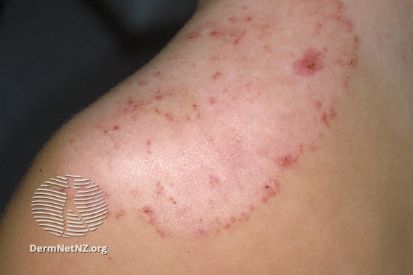
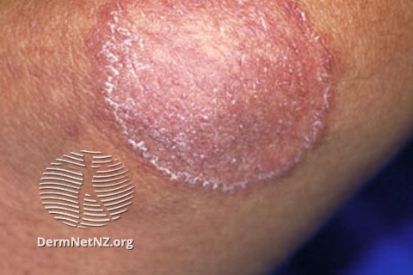
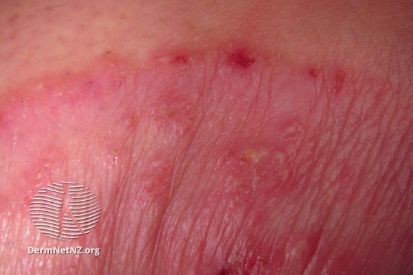
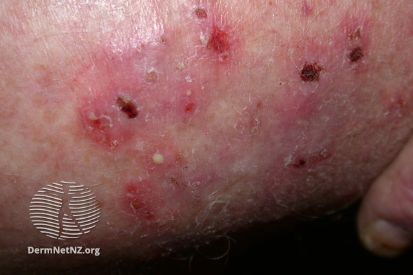
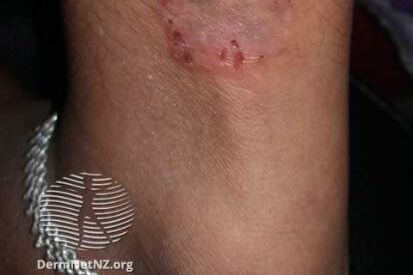
What are the Symptoms of Ringworm
- Red, circular rash with raised edges.
- Itchy or scaly skin within the ring-shaped area.
- Clearing or normal skin in the center of the ring, creating a donut-like appearance.
- Blistering or oozing..
- Hair loss in affected areas if the scalp is involved.
- Tinea infection may cause athlete's foot, jock itch, or other localized symptoms depending on the affected body part.
What are the Causes of Ringworm?
- Ringworm is caused by a group of fungi known as dermatophytes, which thrive in warm, moist environments. These fungi can be found in soil, on animals, and on infected humans.
- Direct skin-to-skin contact with an infected person or pet, sharing personal items like towels or combs, and walking barefoot in damp public places such as locker rooms or swimming pool areas can all contribute to the spread of ringworm.
How to Prevent Ringworm
Ringworm FAQs
Ringworm isn't caused by worms; it's a fungal infection that forms a circular rash. You likely got it through direct contact with an infected person, pet, or surface. Good news: it's treatable!
Yes, ringworm is contagious. Avoid sharing personal items like towels or clothing, and wash your hands thoroughly. With proper treatment, you can prevent spreading it to others.
Mild cases may respond to over-the-counter antifungal creams. If it persists or is in a sensitive area, it's best to consult with a dermatologist for a prescription-strength treatment.
Pets, especially cats, can carry ringworm. Wash your hands after handling animals, and if your pet shows signs of ringworm, consult a vet. Regular cleaning of pet areas is essential.
It's best to avoid makeup or nail polish on the affected area, as it can trap moisture and hinder healing. Keeping the area clean and allowing it to breathe supports the recovery process.
You can still exercise, but avoid activities that cause excessive sweating. Choose loose, breathable clothing, and shower promptly afterward. Sweating can worsen the infection, so be mindful during workouts.
Treatments for Ringworm
Featured Products
Check your local office for current stock!
Check your local office for current stock!
